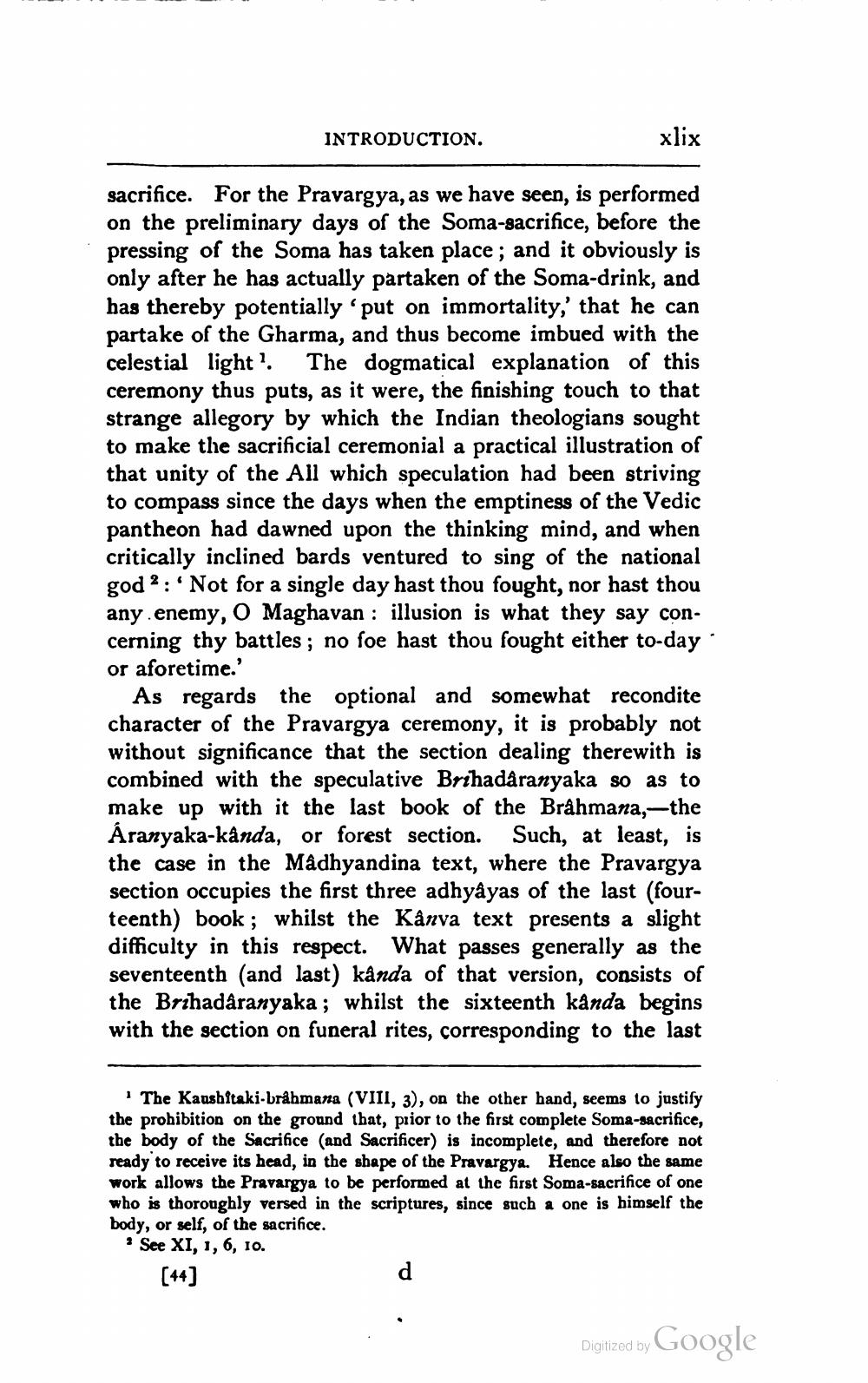________________
INTRODUCTION.
xlix
sacrifice. For the Pravargya, as we have seen, is performed on the preliminary days of the Soma-sacrifice, before the pressing of the Soma has taken place; and it obviously is only after he has actually partaken of the Soma-drink, and has thereby potentially put on immortality,' that he can partake of the Gharma, and thus become imbued with the celestial light? The dogmatical explanation of this ceremony thus puts, as it were, the finishing touch to that strange allegory by which the Indian theologians sought to make the sacrificial ceremonial a practical illustration of that unity of the All which speculation had been striving to compass since the days when the emptiness of the Vedic pantheon had dawned upon the thinking mind, and when critically inclined bards ventured to sing of the national god ? : 'Not for a single day hast thou fought, nor hast thou any enemy, O Maghavan : illusion is what they say concerning thy battles ; no foe hast thou fought either to-day or aforetime.'
As regards the optional and somewhat recondite character of the Pravargya ceremony, it is probably not without significance that the section dealing therewith is combined with the speculative Brihadåranyaka so as to make up with it the last book of the Bråhmana,—the Aranyaka-kanda, or forest section. Such, at least, is the case in the Mâdhyandina text, where the Pravargya section occupies the first three adhyâyas of the last (fourteenth) book; whilst the Kånva text presents a slight difficulty in this respect. What passes generally as the seventeenth (and last) kända of that version, consists of the Brihadåranyaka; whilst the sixteenth kända begins with the section on funeral rites, corresponding to the last
The Kaushitaki-brahmana (VIII, 3), on the other hand, seems to justify the prohibition on the ground that, prior to the first complete Soma-sacrifice, the body of the Sacrifice (and Sacrificer) is incomplete, and therefore not ready to receive its head, in the shape of the Pravargya. Hence also the same work allows the Pravargya to be performed at the first Soma-sacrifice of one who is thoroughly versed in the scriptures, since such a one is himself the body, or self, of the sacrifice.
. See XI, 1, 6, 10.
Digitized by Google




